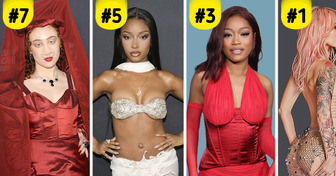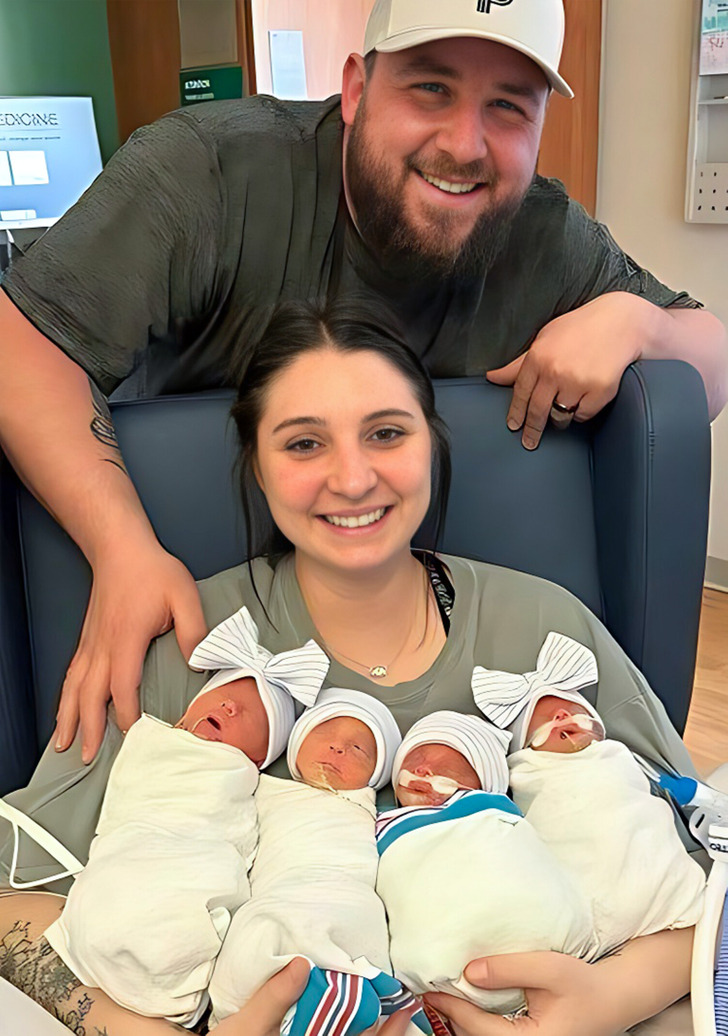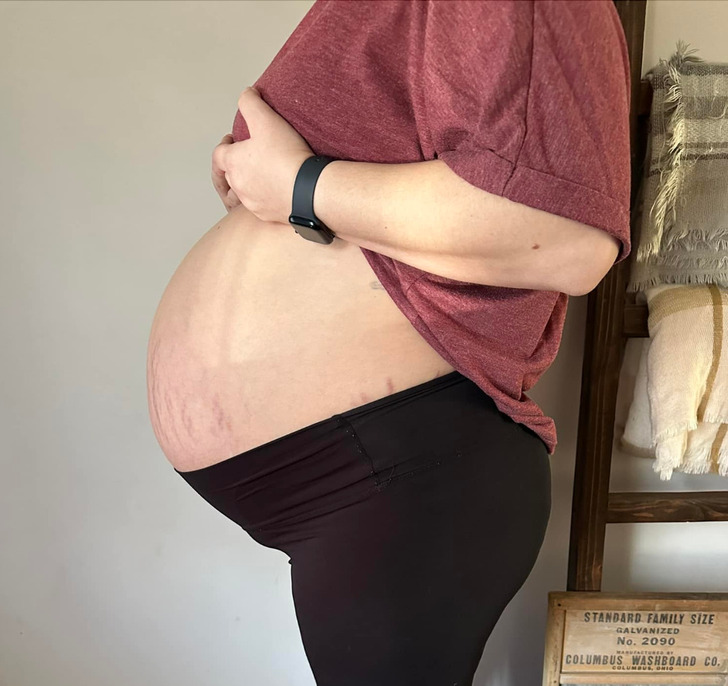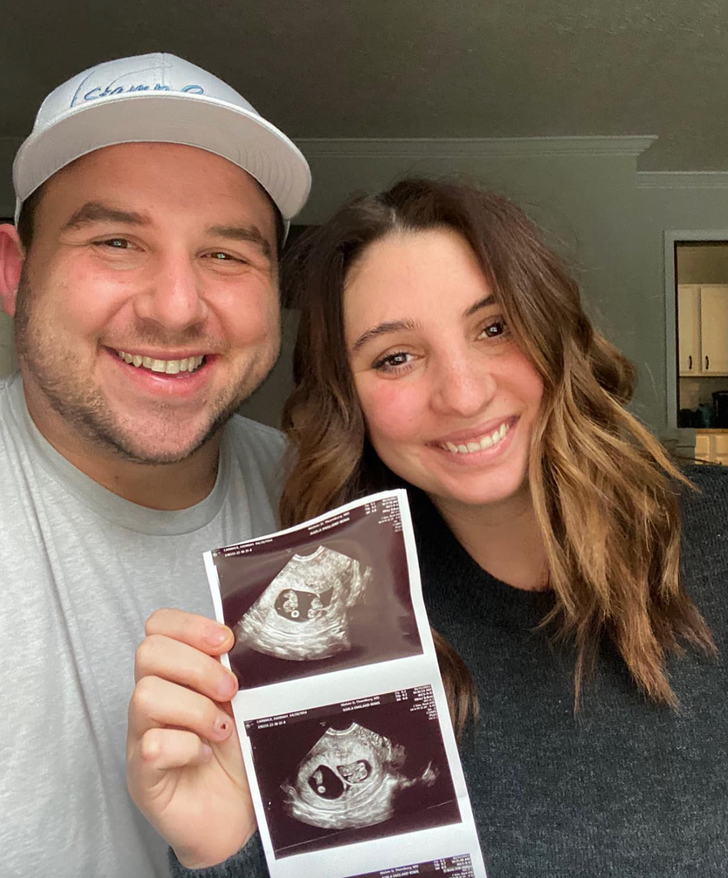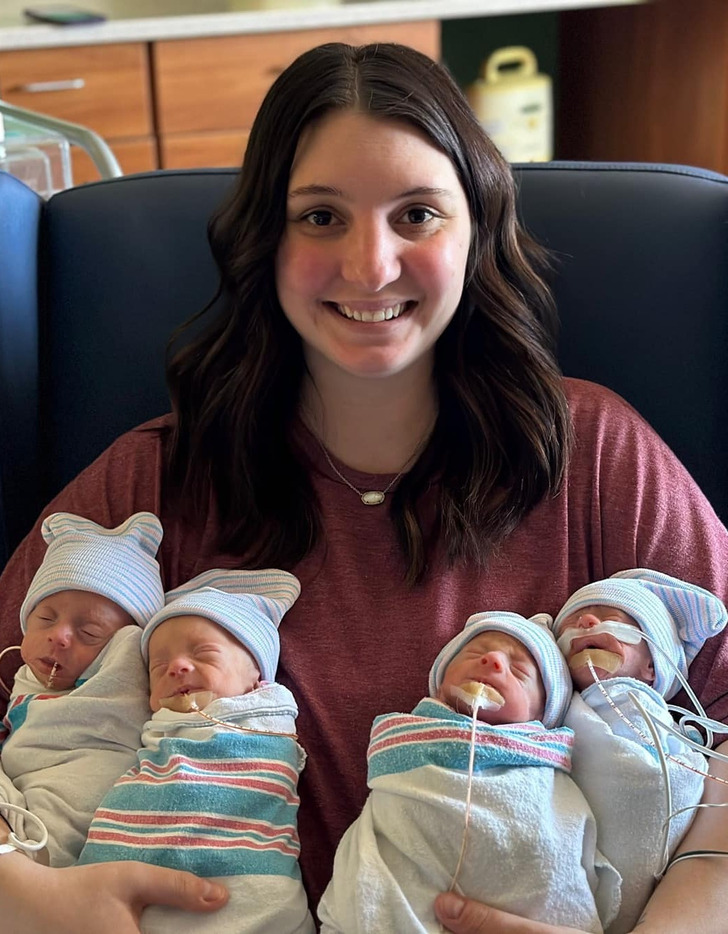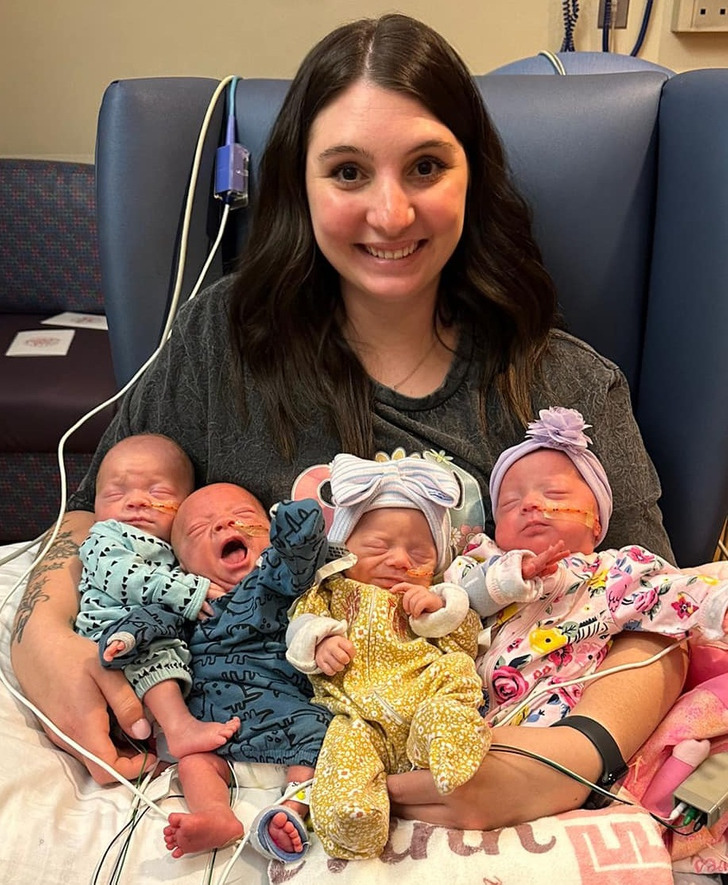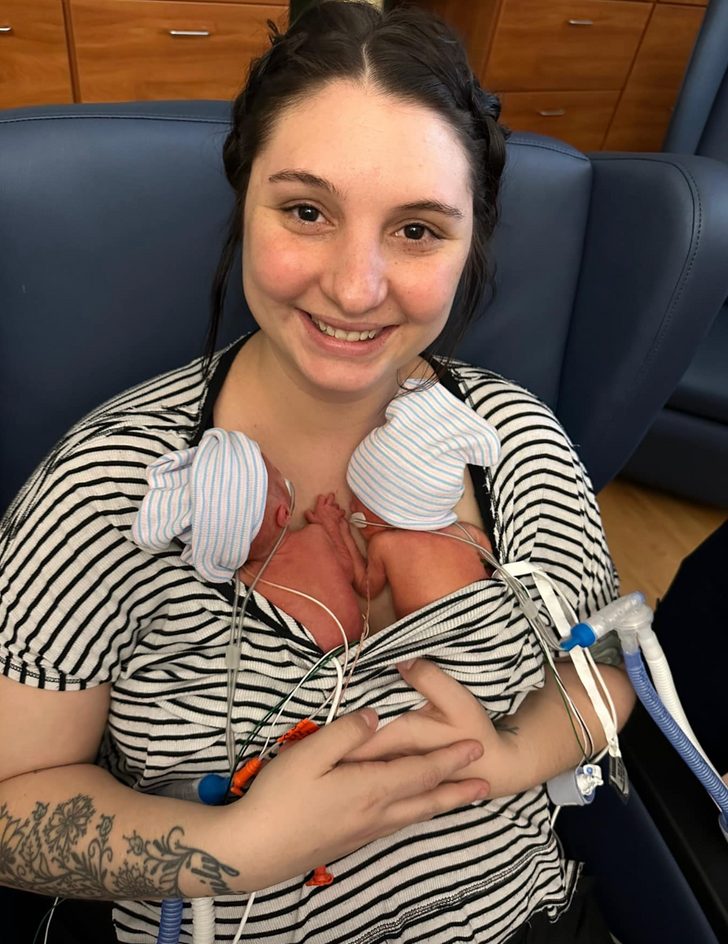Oh me, what a huge surprise 😮. Bless Hannah's heart. The shock of going from 1 baby to 4 babies in a matter of a few moments is astounding. I wish her and her husband all the best and I hope they have a great support system with family and friends to help them out some so they can get some rest occasionally. Wow! What incredible luck they have.
Couple Welcomes ’Incredibly Rare’ Quadruplets Including 2 Sets of Identical Twins
A couple wanted to give their 8-year-old daughter a sibling, but little did they know about the miracle heading their way. The family’s fortune changed when the 29-year-old mother had her first astonishing pregnancy scan, and all she and her husband could do was laugh in disbelief.
An incredibly uncommon situation
Michael and Hannah Carmack joyfully welcomed a set of 4. The arrival of these quadruplets is considered “incredibly rare.” Evelyn and Adeline, two identical twin girls, along with David and Daniel, their two identical twin brothers, were born prematurely at 27 weeks through a Cesarean section.
Reflecting on their unexpected journey, Michael shared, “I had to convince Hannah it was a good idea to have a second child; imagine how she reacted when she found out we were having four!”
The ’surprise’ ultrasound
The surprising revelation of the quadruplets occurred during Hannah’s initial pregnancy scan. Hannah could discern two sacs on the ultrasound screen as a veterinary technician. “She was like, ’Twins?’ But the ultrasound tech didn’t respond,” told Michael. “Then Hannah goes, ’Is it three?’ Then the ultrasound tech put her hand on Hannah’s knee and said, ’Sweetie, it’s four.’”
Michael’s elation was boundless: “I started laughing... I always wanted a big family, but that wasn’t Hannah’s dream,” he expressed.
All 4 of them are in good health but still in hospital.
The four babies are anticipated to receive hospital care until June, aligning with their projected due date. In the interim, Michael and Hannah have undertaken home renovations to accommodate their growing family.
Despite maintaining her position as a veterinary technician, Hannah prioritizes frequent visits to the hospital, where she holds and nurtures the babies to foster a solid maternal connection. Michael admired his wife, affirming, “My wife is a rock star.”
According to a study, the chances of spontaneously conceiving quadruplets range from 1 in 512,000 to 1 in 677,000. Furthermore, according to a specialist in maternal-fetal, the rate of triplets or higher is only 80 in 100,000 births, while having two sets of identical twins, indicating that both embryos divided after fertilization, adds an even greater level of uniqueness.
Comments
Related Reads
9 Unexpected Things That Show a Marriage Won’t Last Long
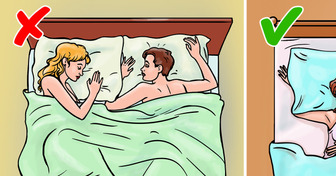
7 Facts About the Female Body That Very Few People Know About
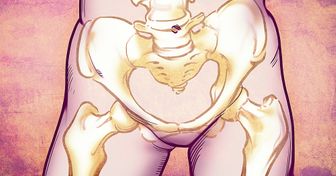
13 Celebrity Couples That Could’ve Won the Genetic Jackpot Had They Become Parents

15+ Tattoos That Can Be Appreciated Even by Those Who Are Against This Art
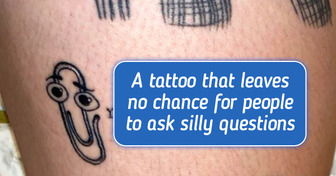
12 Celebrities Who Changed Just One Thing About Their Looks, and Became Way More Attractive
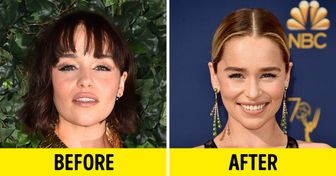
19 Places Where Only People With Nerves of Steel Can Live
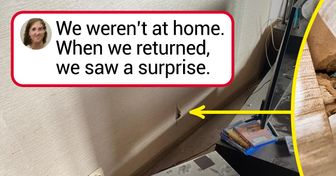
11 People Who Went From Poor to Middle Class Revealed What Surprised Them the Most
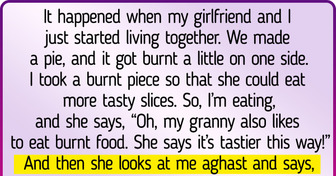
Miley Cyrus Raises Eyebrows as She Wears a Naked Dress Made Only of Safety Pins at the 2024 Grammys

Meg Ryan, 62, Is Praised for Finally Looking Her Age As She Stuns in Her Latest Appearance
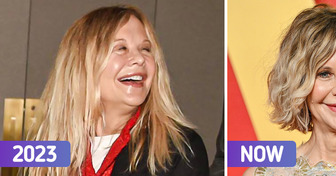
A Homeless Woman Receives a Full Makeover and Impresses the Whole World
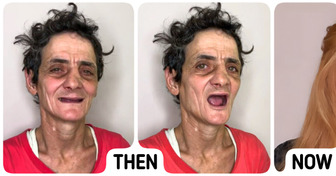
A Little Girl Was Called a ’Monster’ Because of Her Birthmark, Until Her Mom Brought Back Her Sweet Smile
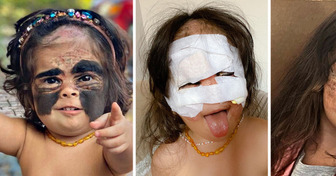
We Ranked 15 Grammys Afterparty Looks From Striking to Most Risqué
